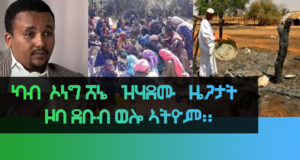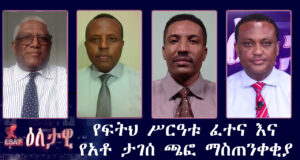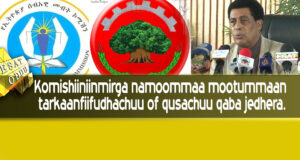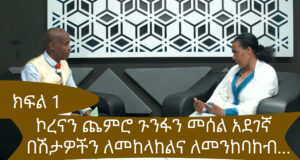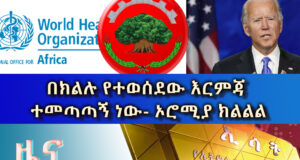by Engidu Woldie
ESAT News (January 3, 2018)
In an unprecedented move by a regime known for cruel treatment of political prisoners as well as criminalizing dissent and independent voice, a statement by the Prime Minister Wednesday says “some” political prisoners would be released.
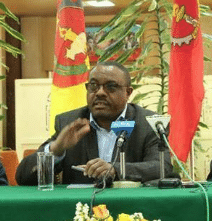
Hailemariam Desalegn speaking at a press conference on Wednesday January 03, 2018
“Some members of political parties and other individuals would be released to widen the political and democratic space,” a media outlet controlled by the ruling party reported Wednesday morning. The wordings and quotes from the Prime Minister in the reports of media controlled by the ruling party keep changing as we put together this report.
The announcement was seen as a first confession by a regime that has been denying holding political prisoners.
Hailemariam Desalegn was speaking at a joint press conference by leaders of the Ethiopian People’s Revolutionary Democratic Front (EPRDF), the ruling coalition of ethnic parties that has been in a marathon meeting after a turmoil brought by a relentless anti-regime protest across the country as well as political and diplomatic pressure from Diaspora Ethiopians.
Mr. Desalegn also promised to close down Ma’ekelawi, a notorious prison ward in the capital Addis Ababa which has been used by TPLF interrogators to torture political dissidents, activists and critical journalists. The TPLF, a member party of the EPRDF, but that controls practically every aspect the economy, the bureaucracy, intelligence and the military, also controls Ma’ekelawi.
Independent reports by rights watchdogs and testimony by former prisoners show that TPLF interrogators at Ma’ekelawi inflict unimaginable physical and psychological harm on their subjects. Mr. Desalegn said the facility was a place used by the former marxist regime, the Dergue, to torture prisoners. The Premier said Ma’ekelawi would now be turned into a “museum.” He said a modern detention facility would be built in its place.
The statement by Mr. Desalegn, as reported by TPLF and EPRDF controlled media says “some members of political parties and other individuals would be released to widen the political and democratic space.”
It is still unclear which political prisoners were referred as “some” members of political parties as the statement has been ambiguous. But opponents of the regime demand for the release of “all political prisoners.”
Reeyot Alemu, a journalist jailed for four years in Maekelawi and other prisons says she would not trust the words of the Prime Minister.
“The whole country is a prison as far as I am concerned. Besides, the statement is ambiguous. If they want to release political prisoners, they must release all and sundry,” she said.
“Even in an event that the political prisoners are released, the ideals and missions they had gone to jail for were still not free.”
She believes the regime was just trying to get a respite from the unrelenting protest engulfing the entire country. “Ethiopians should not be distracted by this statement. They need to keep the impetus and keep the fight against tyranny.” Alemu said.
As to converting the detention center into a museum, Reeyot Alemu recalled that the regime has built Kaliti prison when another notorious prison called Kerchelle was dismantled to make space for the new headquarters of the African Union. “The torturers and the cruel system is still there. Building a new facility would not change anything.”
Ethiopians at home and in the Diaspora last week held a one-day social media campaign to bring to light the predicament of prisoners of conscience in TPLF prisons. Campaigners posted pictures and stories of hundreds of prisoners of conscience and political prisoners who were being tortured by prison guards, interrogators and spies of the TPLF.
 The Ethiopian Satellite Television and Radio (ESAT) No. 1 Ethiopian news media: Esat, Ethiopian news, daily Ethiopian news, ESAT tv, ESAT Radio, Ethiopia
The Ethiopian Satellite Television and Radio (ESAT) No. 1 Ethiopian news media: Esat, Ethiopian news, daily Ethiopian news, ESAT tv, ESAT Radio, Ethiopia
